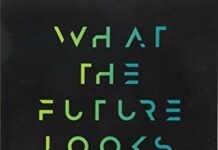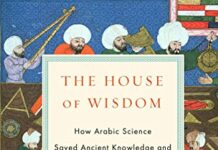
Ebook Info
- Published: 2010
- Number of pages: 336 pages
- Format: PDF
- File Size: 2.35 MB
- Authors: Jim Al-Khalili
Description
In Pathfinders: The Golden Age of Arabic Science, Jim al-Khalili celebrates the forgotten pioneers who helped shape our understanding of the world. For over 700 years the international language of science was Arabic. Surveying the golden age of Arabic science, Jim Al-Khalili reintroduces such figures as the Iraqi physicist Ibn al-Haytham, who practised the modern scientific method over half a century before Bacon; al-Khwarizmi, the greatest mathematician of the medieval world; and Abu Rayhan al-Biruni, a Persian polymath to rival Leonardo da Vinci. ‘Jim Al-Khalili has a passion for bringing to a wider audience not just the facts of science but its history … Just as the legacy of Copernicus and Darwin belongs to all of us, so does that of Ibn Sina and Ibn al-Haytham’ Independent ‘He has brought a great story out of the shadows’ Literary Review ‘His command of Arabic and mathematical physics invests his story with sympathy as well as authority’ Guardian ‘A fascinating and user-friendly guide’ Sunday Telegraph ‘This captivating book is a timely reminder of the debt owed by the West to the intellectual achievements of Arab, Persian and Muslim scholars’ The Times Jim Al-Khalili OBE is Professor of Physics at the University of Surrey, where he also holds the first Surrey chair in the public engagement in science. He was awarded the Royal Society Michael Faraday Prize for science communication in 2007, elected Honorary Fellow of the British Association for the Advancement of Science and has also received the Institute of Physic’s Public Awareness of Physics Award. Born in Baghdad, Jim was educated in Iraq until the age of 16 and it was there, being taught by Arabic teachers in Arabic that he first heard and learnt about the great Arab scientists and philosophers.
User’s Reviews
Editorial Reviews: About the Author Jim Al-Khalili OBE is a theoretical physicist, author and broadcaster. He is currently Professor of Physics at the University of Surrey, where he also holds the first Surrey chair in the public engagement in science. He was awarded the Royal Society Michael Faraday Prize for science communication in 2007, elected Honorary Fellow of the British Association for the Advancement of Science and has also received the Institute of Physic’s Public Awareness of Physics Award. Born in Baghdad, Jim was educated in Iraq until the age of 16 and it was there, being taught by Arabic teachers in Arabic that he first heard and learnt about the great Arab scientists and philosophers. He has long championed the influence of Islam on science and hopes to bring attention to the rich Arab heritage in our understanding of science today.
Reviews from Amazon users which were colected at the time this book was published on the website:
⭐Eye-opening weapon against ethnic and religious hatred. It led me to the interesting new science, quantum biology. I highly recommend for those who are interested in Arab sciences.
⭐An atomic scientist by training, an Islamic historian at heart, a lyrical writer by love.
⭐I did
⭐I do definitely recommend this book. I was so much attracted to the description of this book, “On the shoulders of eastern giants”. I read it on my Kindle and I enjoyed every bit of it. This is a very well written book, and the author has done a very good job at polishing and refining his writing to deliver a very readable and fluent text and it also succeeds at keeping a neutral point-of-view, in my opinion.The book is certainly not an encyclopedia and it is not meant to portrait “all” that has been done by Muslim, or – as the book calls – Arabic scholars and scientists (The author justly clarifies that by “Arabic Science” he does not mean Arab science but the science and philosophy that has been conveyed via Arabic language, produced by all Arabic-writing scholars of Persian, Middle Eastern, North African, Andalusian, or other origins). For instance the book does not address some important achievements such as Zakariya-ye-Razi’s discovery of ethyl alcohol, Omar-e-Khayyām’s work on the binomial theorem, or Abū Bakr-e-Karaji’s work on integer exponents and the sum of integer cubes, as well as many other contributions. However, it does a very good job at appreciating the achievements of the “Arabic” scientists and at describing the context in which this has been achieved. More importantly, it gives a very well account of the momentous role of Muslim scholars in leading the human investigation of ideas and exploration of the world during some nearly eight centuries. It explains the translation movement; then it moves to investigate all that Muslim scholars have added to what has been known before by Babylonians, Indians, Chinese, and Greeks, before eventually passing the torch to the renaissance Europeans. It goes further in portraying Ibn-e-Haytham, Ibn-e-Sīnā, and Abū Rayḥān-e-Bīrūnī as the three giants who stand as high as Aristotle and Newton in the history of mankind.Where this book really fails, is at the end. The author considers the fourteen and fifteen centuries as the final episodes of the story. By doing so, he misses the 16th and 17th Isfahan and the philosophical school that has flourished there leading to scholars like Mir Dāmād, Shaykh‐e-Bahāʾī, and specially Mulla Sadrā-ye-Shīrāzī who has brought the Islamic philosophy up to a new level by giving a revolutionary synthesis of Ibn-e-Sina’s philosophy (Avecinaism) and, Suhrawardi’s Illuminationist philosophy. This is a giant miss that cannot be overlooked by any standard.This is a book that MUST be read by all easterners who seem to have completely forgotten what they have been able to achieve and what they will achieve if they return to the paled but not perished paths of glory. More specifically, and as a Persian myself, I invite all Iranians to read this book, in the hope that they stop murmuring so much and start working, studying, and innovating. May it be that all inheritors of those past days of glory, who find themselves today on the downside of advantage, realize that the progress does not result from wishful thinking or dependence on the West but from hard work, and self-confidence.
⭐An unusual book from Mr. Al-Khalili, but a very interesting one nonetheless. Part scientific study, part Islamic history, The Golden Age of Arabic Science describes how past Islamic Empires contributed to humanity’s understanding of science and paved the way for the Renaissance in Europe a few centuries later. Building on Ancient Greek and Indian thinking, the Arabs of the Middle Ages expanded scientific thought beyond what had been known at the time. I was very impressed and Mr. Al-Khalili has sparked my interest in further study of the history of the Islamic Caliphates.The author describes how Islamic scientific thinking grew after the establishment of the Abbasid Caliphate in the eighth century. The scholarly minded Caliph, al-Ma’mun, was a huge enthusiast of study and encouraged scholars of all creeds and beliefs to come to the empire to further their knowledge. By the middle of the ninth century the imperial capital of Baghdad was to become a centre of excellence for scientific progress. Mr. Al-Khalili identifies the areas where progress was made; mathematics, medicine, astronomy and chemistry were all to see advances and the author identifies particular scientists of the era and how they made history. Arab scientists were to make headway in the use of experimentation in their pursuit of knowledge.The phenomena known as the ‘Translation Movement’ had a major impact on Abbasidian science and witnessed the translation of many Ancient Greek texts by philosophers and scientists of the day. Abbasid science was also to be heavily influenced by pre-Muslim Persian culture and (believe it or not) the invention of paper as a cheaper way to record results and data. The Abbasid Caliphate was also to be a very tolerant society with Christian and other religious scholars allowed to reside within the empire. Mr. Al-Khalili goes even further to document how the Arab kingdom of Andalusia also contributed to the development and knowledge of science, stating that subsequent scholars and scientists of Christian conquerors were to benefit from the vast libraries of Arab and Moorish knowledge.An interesting aspect of the authors work describes the construction of both astronomic observatories and the House of Wisdom in the imperial capital of Baghdad. These buildings highlight and emphasize just how science was to truly progress in Arabic society. The observatories were to become important to the worship of Allah with astronomy providing accurate data for Islamic prayer patterns. The House of Wisdom was to contain vast texts on every conceivable scientific subject. Something the Caliph Al-Ma’mun prized very greatly. Alas, subsequent Caliphs did not see the advantage of scientific study and research. The Golden Age of Arabic science was to decline and fade in the later centuries. The House of Wisdom itself was to be destroyed by the Mongols in the thirteenth century.Finally, there are two subjects covered in the book which pave the way toward a bright future for Islam. Firstly, Al-Khalili describes the theological ‘Mu’tazila’ movement which sprang up during the time of Al-Ma’mun. Based on the concept of championing rational thought above all religious theory, Mu’tazilites became the think-tank of the Abbasid Caliphate under Al-Ma’mun. The movement was also to fade under subsequent rulers, however, these ideals confirm that science found a home in Islamic thinking over a thousand years ago, and can still find a home today. This compliments the author’s final statements that Islam and science are in no way incompatible as many commentators seem to suspect. Indeed Islam is a belief system which encourages the search for knowledge according to Mr, Al-Khalili. He isn’t wrong either.Mr. Al-Khalili’s work has interested me far more than I thought it initially would. This is a very enjoyable and informative book and certainly one for those with a passion for both scientific and Islamic history.
⭐At school, I was taught that science and reason simply stopped at the end of the Roman empire and didn’t start again until the beginning of the Renaissance.However, I’ve read enough books and watched enough documentaries to be well aware that while Britain was in the Dark Ages, other parts of the world were forging ahead with exciting discoveries in all fields of enquiry, from mathematics to astronomy, physics to chemistry and much more besides.In Pathfinders, Jim Al-Khalili fills in a lot of the gaps, introducing us to the scientific stars of the Islamic world and their discoveries, many of which are the building blocks for the breakthroughs commonly believed to have been made independently by later (white male) geniuses.Interesting and informative, it really helps to put some context and detail to something I kind of knew in theory, but didn’t know a lot about.
⭐This is an interesting book, plugging the gap between the Greeks and the Renaissance in the commonly-told history of science. The ground Al-Khalili covers isn’t particularly original, I suspect, but quite a lot of what he had to say was new to me. He writes well, clearly and with expertise, particularly about the Maths and the Physical sciences. In fact I would have liked a bit more detail in these areas. In spite of a useful chapter at the beginning explaining how Arabic names work, I found the impressive list of Arabic scholars the book covers, each with the latinised version of his name as well as the original, was a bit confusing, but that’s my problem really. Slightly oddly, Al-Khalili frames the history with his own experiences growing up in Bhagdad, and that of previous generations of his family. This could have been a bit sentimental, but wasnt, and helped to show how Arabic science is faring in the current day. Interesting parallels can be drawn between the burning of the Arabic libraries when the Arabic-speaking world was turning to a more fundamental version of Islam at the start of the Renaissance, and attitudes to science in the US now
⭐A good review of the contributions of Arabic scientists, well-written and detailed. Al-Khalili’s project is to show that, far from simply being unimaginative transmitters of Greco-Roman knowledge during the Western “dark ages”, the Arabic-speaking world developed and contributed significantly to that knowledge, and he largely succeeds in this.I only have two criticisms: firstly, al-Khalili steers clear of philosophical and theological discussions, yet the nature of science at the time (“natural philosophy”, in the terminology of the Western inheritors of the Arabic knowledge) was such that it was seen as a part of the same investigation; consequentially I would have liked more information about the general worldview of the sciento-philosophers he covers.Secondly, in his eagerness to show how the Arabic-speaking world made genuine contributions (coupled with, I’d speculate, a slightly Kuhnian view of how science progresses), he sometimes seems a little over-keen to find each person’s Great Contribution. Especially in the section on the mathematician al-Khwarizmi, he seems to be casting around rather desperately to locate the Single Great Thing that al-Khwarizmi did, yet unnecessarily so: it’s clear that the guy massively progressed maths in general, and if that was by a little bit here and a little bit there, then that’s fine by me. No need to locate his Nobel Prize-equivalent discovery.
⭐Loved the book and makes you realise how Islam triggered the European Renaissance yet gets no credit for its influential role in dragging Europe out of the Dark Ages. Love Khalili’s writing style, so easy to understand.
⭐Great intro to the flow of scientific literacy around the Middle East and Europe. Being educated in the 80s it felt like history sort of stopped from about 50AD until about 1500 (and in science and maths there was no history!)This helps redress the balance.
Keywords
Free Download Pathfinders: The Golden Age Of Arabic Science in PDF format
Pathfinders: The Golden Age Of Arabic Science PDF Free Download
Download Pathfinders: The Golden Age Of Arabic Science 2010 PDF Free
Pathfinders: The Golden Age Of Arabic Science 2010 PDF Free Download
Download Pathfinders: The Golden Age Of Arabic Science PDF
Free Download Ebook Pathfinders: The Golden Age Of Arabic Science




